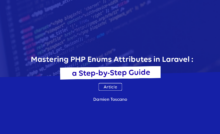What Solutions?
Serverless Framework is an open source solution that aims to make serverless deployments easier and platform-independent (agnostic approach). It makes it possible to deploy a given function on AWS Lambda, Azure, Google Cloud, etc. It also support several languages (e.g., Java, NodeJS, Go, Python, PHP, Swift, .NET).
We tested this solution by developing a NodeJS function and using the native power of Serverless Framework to deploy it.
ClaudiaJS is not a framework but rather an open source deployment tool that aims to make Node.js deployments to AWS Lambda easier. Unlike Serverless Framework, ClaudiaJS is specific to Node.js and AWS Lambda. As a result, it cannot be used to deploy a Node.js function to any other serverless solution.
We tested this solution by using Express Framework, which is a Node.js Web Framework.
https://expressjs.com/
Serverless Framework with Express Framework
The last solution we tested was a combination of Serverless Framework and ExpressJS to deploy a Node.js package developed using Express (similar to deployments using ClaudiaJS). This solution is an alternative to ClaudiaJS for deploying existing express apps, and helps measure performance differences on serverless deployments on the basis of how the project is developed.





